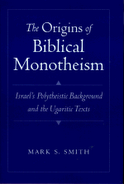Taken from Pharyngula
Here's the most depressing thing I've seen all week (and I'm grading genetics exams): it's the result of a national survey of high school biology teachers. At least 16% of our high school teachers are young earth creationists. Furthermore, 12% our our teachers are using biology classes in public schools to teach creationism in a positive light. The majority are still pro-science, but even in the good cases, relatively little time is spent on teaching evolution. The news isn't all bad. One constructive discovery is that it is neither legal battles nor demanding state standards that determine how much effort is put into teaching evolution — it's how much education the teachers have in the subject. The obvious lesson is that we ought to be encouraging more coursework for teachers; help educate the teachers, give them more material they can use in the classroom, and the students benefit. Here's the conclusion of the paper, which lays it all out very clearly. Our survey of biology teachers is the first nationally representative, scientific sample survey to examine evolution and creationism in the classroom. Three different survey questions all suggest that between 12% and 16% of the nation's biology teachers are creationist in orientation. Roughly one sixth of all teachers professed a "young earth" personal belief, and about one in eight reported that they teach creationism or intelligent design in a positive light. The number of hours devoted to these alternative theories is typically low--but this nevertheless must surely convey to students that these theories should be accorded respect as scientific perspectives. The majority of teachers, however, see evolution as central and essential to high school biology courses. Yet the amount of time devoted to evolutionary biology varies substantially from teacher to teacher, and a majority either avoid human evolution altogether or devote only one or two class periods to the topic. We showed that some of these differences were due to personal beliefs about human origins. However, an equally important factor is the science education the teacher received while in college. Additional variance is likely to be rooted in pressures--subtle or otherwise--emerging from parents and community leaders in each school's community, in combination with teachers' confidence in their ability to deal with such pressures given their knowledge of evolution, as well as their personal beliefs. These findings strongly suggest that victory in the courts is not enough for the scientific community to ensure that evolution is included in high school science courses. Nor is success in persuading states to adopt rigorous content standards consistent with recommendations of the National Academy of Sciences and other scientific organizations. Scientists concerned about the quality of evolution instruction might have a bigger impact in the classroom by focusing on the certification standards for high school biology teachers. Our study suggests that requiring all teachers to complete a course in evolutionary biology would have a substantial impact on the emphasis on evolution and its centrality in high school biology courses. In the long run, the impact of such a change could have a more far reaching effect than the victories in courts and in state governments.
| 









0 comments:
Post a Comment